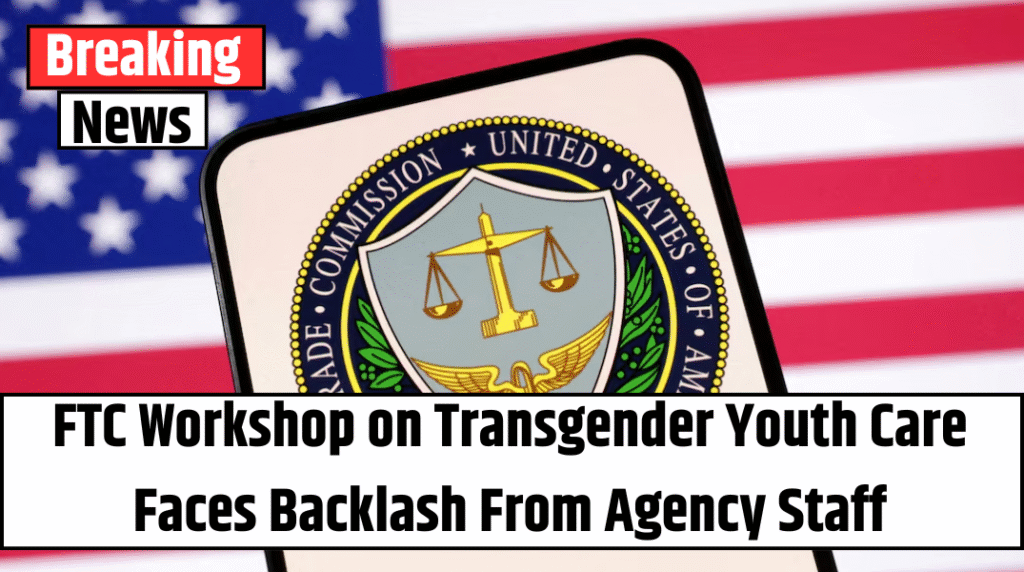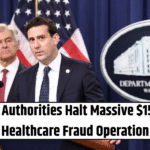Some employees at the U.S. Federal Trade Commission are expressing alarm over the agency’s plans to host a workshop scrutinizing gender-affirming medical treatments for transgender minors. In an anonymous letter obtained by Reuters, FTC staff criticized the event, arguing it exceeds the agency’s consumer-protection mandate and encroaches on private medical decisions.
The staff letter, submitted to members of Congress, states that the workshop would mark an unprecedented step for the FTC by delving into confidential doctor-patient interactions. “This is not the FTC’s lane,” the letter asserted, calling on FTC Chair Andrew Ferguson to cancel the event or at least initiate a 60-day public comment period to include broader perspectives.
Workshop Tied to Broader Policy Agenda
The proposed workshop is part of a wider set of initiatives introduced under President Donald Trump’s second term, which includes reversing federal recognition of gender identity and eliminating public funding for gender-affirming medical care for minors—a move now being challenged in court.
Ferguson, a Republican appointed to the Commission by President Joe Biden but elevated to chair under Trump in early 2025, has led efforts to use the FTC’s powers in ways aligned with conservative priorities, including complaints about online censorship. The upcoming event seeks to assess whether gender-affirming care may involve deceptive or unfair practices, particularly if health providers fail to disclose risks or exaggerate benefits.
Medical Experts and State Laws
Gender-affirming care—which may involve puberty blockers, hormone therapy, and in rare cases, surgery—is endorsed by leading medical organizations such as the American Academy of Pediatrics. These groups maintain that such care significantly benefits transgender youth experiencing gender dysphoria, and warn that government intrusion into medical decision-making undermines patient care.
Also Read – Federal Authorities Halt Massive $15 Billion Healthcare Fraud Operation
Nonetheless, more than half of U.S. states, primarily led by conservative legislatures, have passed laws in recent years limiting or banning gender-affirming treatments for minors.
Concerns Over FTC Authority and Workplace Impact
Critics within the agency say applying the FTC’s consumer-protection framework to medical practices could undermine public trust and politicize its regulatory mission. The letter from staff members cautions that the workshop risks turning the agency into a tool for a broader ideological campaign, rather than focusing on genuine consumer fraud.
Additionally, the letter raises alarm about the impact of the event on LGBTQ employees at the FTC. Staff voiced concern that speakers invited to the workshop may express views that invalidate the identities of LGBTQ individuals, contributing to a hostile work environment.
“It’s unacceptable to expose our LGBTQ+ colleagues to individuals who challenge their existence and dignity—especially in the workplace,” the letter stated.
Response from Leadership
In response to the internal pushback, FTC spokesperson Joe Simonson defended the workshop’s purpose. He said employees uncomfortable with the event were “free to resign” and framed the discussion as essential to addressing parental and medical concerns.
“No sane person could endorse the needless mutilation of children,” Simonson said. “Americans deserve answers if families were misled about treatments that may have caused irreversible harm.”
Also Read – Uterine Cancer Alert: U.S. Deaths Could Climb Sharply by 2050
Past White House Involvement
In 2022, President Biden called on the FTC to examine whether conversion therapy—efforts to forcibly change a minor’s gender identity or sexual orientation—violated consumer protection standards. The agency, then under Chair Lina Khan, took no formal steps at the time.
As the FTC moves forward with this controversial workshop, the internal dissent underscores growing divisions over how far federal agencies should go in regulating politically charged medical practices. Whether the workshop proceeds as planned—or faces further internal and public pressure—remains to be seen.


